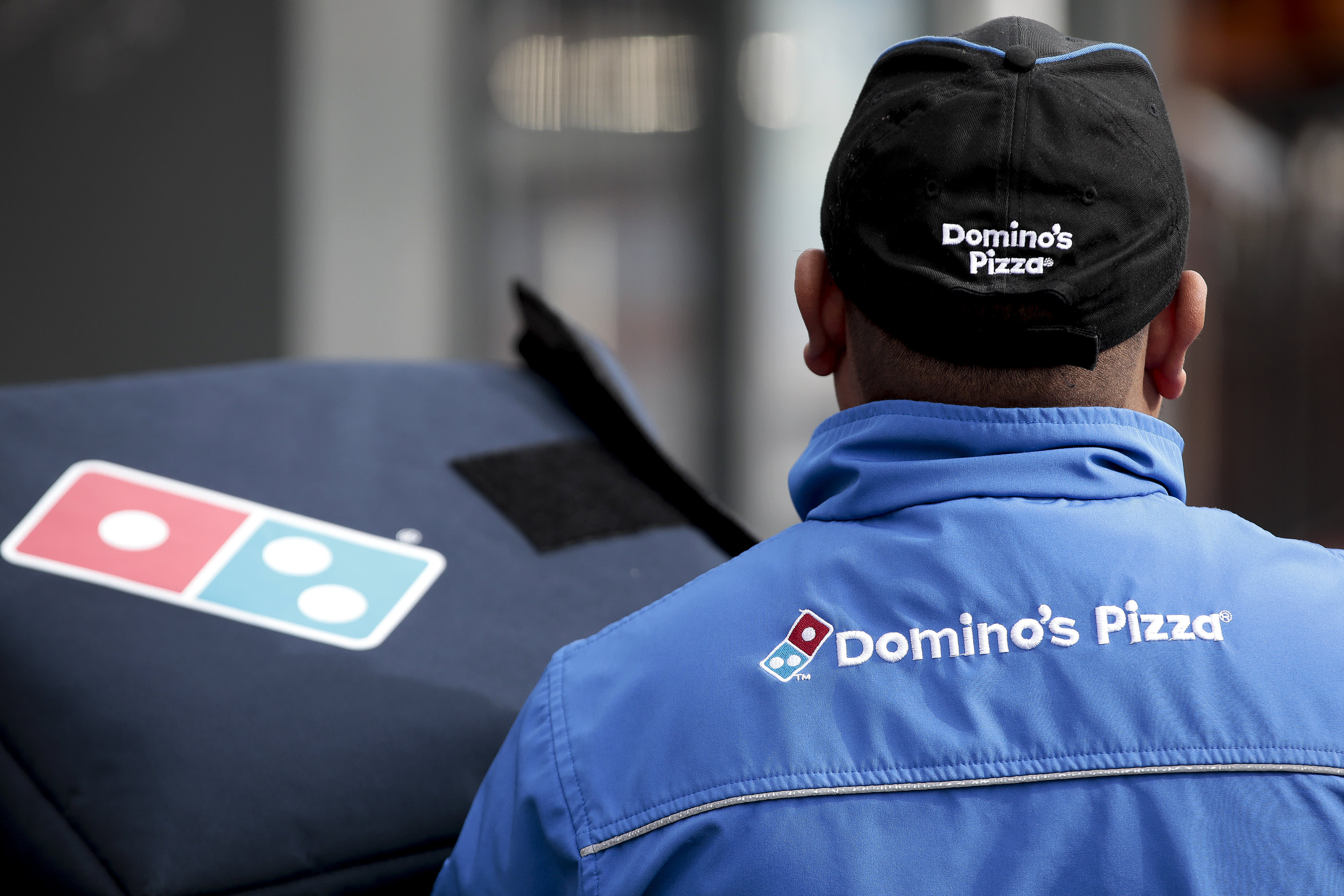Hits: 25

The Domino’s Pizza company logo is displayed on the jacket of delivery driver in London, U.K., on February 27, 2017.
Jason Alden | Bloomberg | Getty Images
Domino’s stock fell Tuesday after the pizza chain reported weaker same-store sales growth as it expands its store base and grapples with the threat of third-party delivery.
Share prices were down 7% at midday. Domino’s stock, which has a market value of $10.7 billion, is down 5% over the last year.
To hold onto its spot as the world’s number one pizza chain, Domino’s has been carrying out a strategy that it calls “fortressing.” Under the strategy, stores are added to existing markets to be closer to customers, making deliveries faster and theoretically increasing driver tips.
Skeptics argue that Domino’s aggressive expansion leads to cannibalization, negatively impacting same-store sales growth. During the second quarter, the restaurant company said domestic same-store sales grew by 3%, falling short of Wall Street’s estimates of 4.8%. CEO Ritch Allison told analysts on the earnings conference call that fortressing put “some pressure” on same-store sales, but he stuck by the strategy as a long-term solution for the company.
Domino’s added 200 net new stores during the quarter, including 42 new U.S. locations.
With the rise of third-party delivery services, the pizza chain has not only been battling for customers from rivals Pizza Hut and Papa John’s, but also every restaurant using Uber Eats, DoorDash and GrubHub.
On last quarter’s conference call and again on Tuesday, executives said that national marketing campaigns from third-party delivery apps put pressure on domestic same-store sales growth. Allison said he does not expect “aggressive activity” from delivery apps to slow down in the near future.
“There is a substantial amount of discounting out there as they drive to gain market share. And second, a lot of spending on advertising in the marketplace,” Allison told analysts.
He said the company still has questions about the economic viability of third-party aggregators, which charge restaurants hefty commission fees. Allison said investors are willing to lose money in order to gain market share, and the restaurant industry has not experienced significant growth that mirrors the rise of delivery.
Domino’s biggest competitor, Pizza Hut, uses GrubHub to process some of its deliveries. Pizza Hut’s parent company Yum Brands owns a stake in the delivery operator.
Domino’s net sales during the second quarter rose 4.1% to $811.6 million, missing expectations of $836.6 million. While sales at stores open at least a year fell short, sales at all U.S. stores grew by 6.8% during the quarter.
Domino’s reported net income of $92.4 million, or $2.19 per share, up from $77.4 million, or $1.78 per share, a year earlier. The pizza chain topped the $2.02 per share expected by analysts surveyed by Refinitiv.
Programming Note: For more on Domino’s Pizza, watch CEO Richard Allison’s interview on Mad Money tonight at 6 p.m. ET.
Be the first to comment